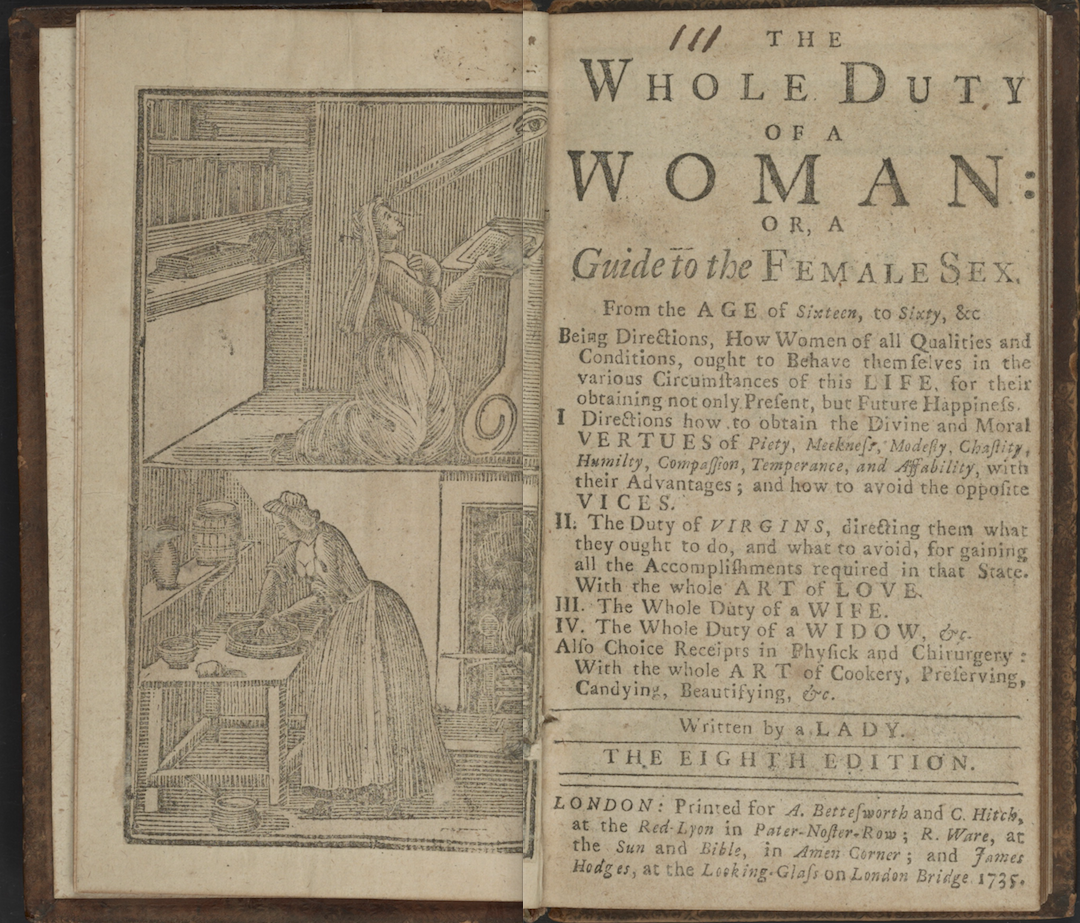The Whole Duty of Woman
Annotation
The following selection comes from a late 17th-century English advice book for women. Such advice books became extremely popular across early modern Europe as material comforts increased and people felt a need to act more “civilized.” With their practical tips for everyday living, along with their prescriptions for better behavior, advice books offer a glimpse of contemporary social ideals as well as social realities.
Although The Whole Duty of a Woman is attributed to “a Lady,” lacking any other information we cannot be sure whether the author was actually a woman. However, such a distinguished attribution suggests that the book was intended for a female audience from the middle- through upper-levels of English society. The two excerpts below—the pamphlet’s Table of Contents and a selection entitled “The Whole Art of Love,” give a sense of what the ideal roles and virtues for such women were. It was commonly believed in England, as elsewhere in Europe, that women were the weaker sex, physically inferior to men and more prone to irrationality. Related to these qualities, however, were the traits of gentleness and softness, characteristics which some saw as indicating a sense of feminine moral equality, if not superiority, to men.
This source is a part of the Women in the Early Modern World, 1500-1800 teaching module.
Text
Frontispiece [title page]
Being Directions, How Women of all Qualities and Conditions, ought to Behave themselves in the Various Circumstances of this Life, for their Obtaining not only Present, but Future Happiness.
I. Directions how to obtain the divine and moral virtues of piety, meekness, modesty, chastity, humility, compassion, temperance, and affability, with their advantages, and how to avoyd the opposite vices.
II. The duty of virgins directing them what they ought to do and what to avoyd, for gaining all the accomplishments required in that state. With the whole art of love, etc.
III. The whole duty of a wife,
IV. The whole duty of a widow, etc.
Also, choice receipts in physick, and chirurgery, with the whole art of cooking, preserving, candying, beautifying, etc.
The Whole Art of Love
The sexes are made of different tempers, that the defects may be better supplied, by mutual assistance. Our sex wants the others reason for our conduct, and their strength for our protection. Theirs want our gentleness to soften and entertain them, our looks have more strength than their laws; there is more power in our tears, than in their arguments; and therefore things prudently managed, will by degrees, bring over a husband to see his errors; and by acknowledging his failings, take care for the future, to amend them; but then the wifes gentleness and virtue, must be the mirror, wherein he must see the deformity of his irregularities.
